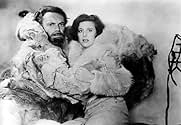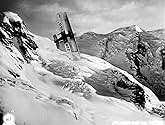Arnold Fanck(1889-1974)
- Regista
- Produttore
- Sceneggiatore
Arnold Fanck è nato il 6 marzo 1889. Luogo di nascita: Germania. È conosciuto come regista e produttore. È celebre per aver partecipato a La tragedia di Pizzo Palù (1929), Der Berg des Schicksals (1924) e Mitsucho la figlia del samurai (1937). È stata sposato con Ute Dietrich, Elisabeth Kind e Natalie Zaremba. Morì il 28 settembre 1974. Luogo di morte: Germania.
- Premi
- 1 vittoria in totale
Foto
Regia
- Der Führer baut seine Hauptstadt
- direttore artistico
- 1966
- 1944
- 1944
- 1943
- 1941
- 1941
- 1941
- 1940
- 1938
- 1938
- 1938
- 1937
- Die Wildnis stirbt!
- Regia
- 1936
- Rêve éternel
- Regia
- 1935
- 1934
Produzione
- 1938
- 1937
- 1927
- Das Rudern
- produttore
- 1925
- 1924
- Die weiße Kunst
- produttore
- 1924
- Der Totenwolf
- produttore
- 1924
- 1924
- 1924
- 1923
- 1923
- 1923
- Pömperly's Kampf mit dem Schneeschuh
- produttore
- 1923
- 1923
Sceneggiatura
- 1956
- 1950
- 1940
- 1938
- 1937
- Rêve éternel
- Sceneggiatura
- 1935
- 1934
- Nordpol - Ahoi!
- idea
- 1934
- 1933
- 1933
- 1932
- 1931
- 1930
- Die heiligen drei Brunnen
- Sceneggiatura (non citato nei titoli originali)
- 1930
- 1929
- Nome alternativo
- Dr. Arnold Fanck
- Data di nascita
- Data di morte
- ConiugiUte Dietrich1972 - 28 settembre 1974 (morte del marito)
- Altre opereAuthor: g Fanck, Arnold, 1889-1974. Title: Er fuhrte Regie mit Gletschern, Sturmen und Lawinen; ein Filmpionier erzahlt. Publisher: [Munchen] Nymphenburger Verlagshandlung [c1973]. Pages: 394, [1] p. illus. 24 cm. Notes: "Filmographie, von C. Bernd Sucher": p. 387-[395] Subjects: g -- Fanck, Arnold, -- 1889-1974.
- Inserzioni pubblicitarie
- QuizDuring the National Socialist period, Fanck got in trouble with propaganda minister Joseph Goebbels, since he refused to cooperate - apparently because of the necessity of joining the party. In 1934, he also began working on his film, Der ewige Traum/Der König vom Mont-Blanc, which not only starred a French hero in French mountains, but also had a Jewish producer, Gregor Rabinowitsch. This conflict brought Fanck into economic difficulties, from which he was only able to escape by accepting a contract from the Japanese ministry of culture in 1936.
Contribuisci a questa pagina
Suggerisci una modifica o aggiungi i contenuti mancanti


















